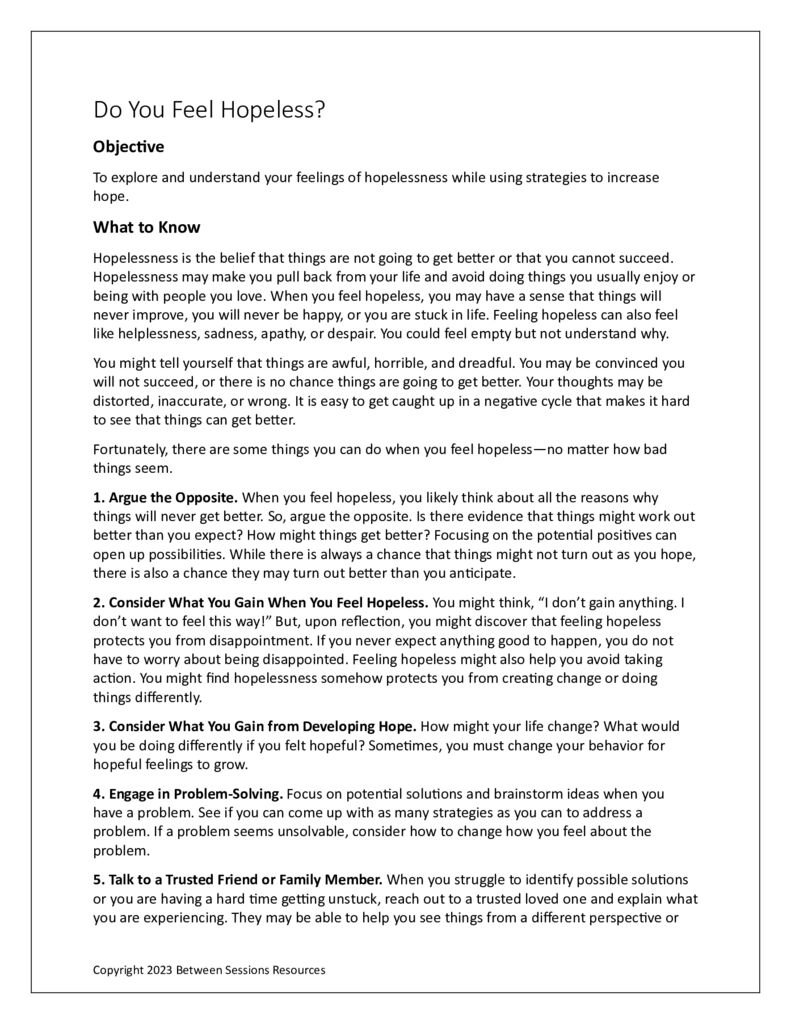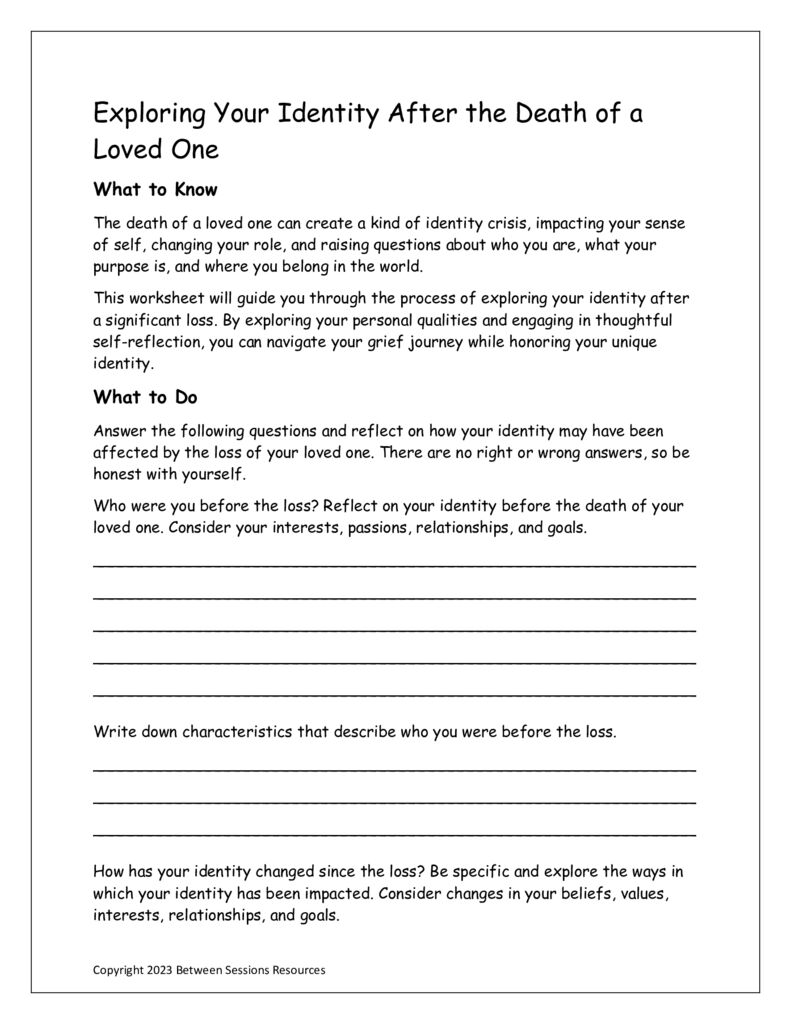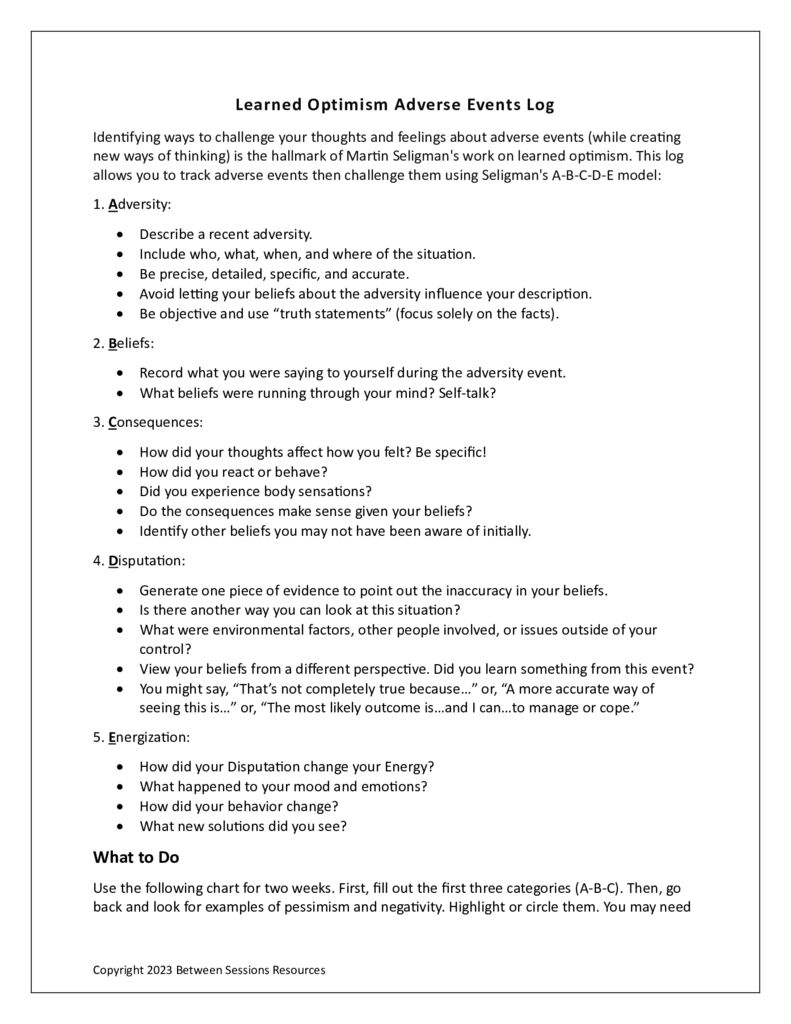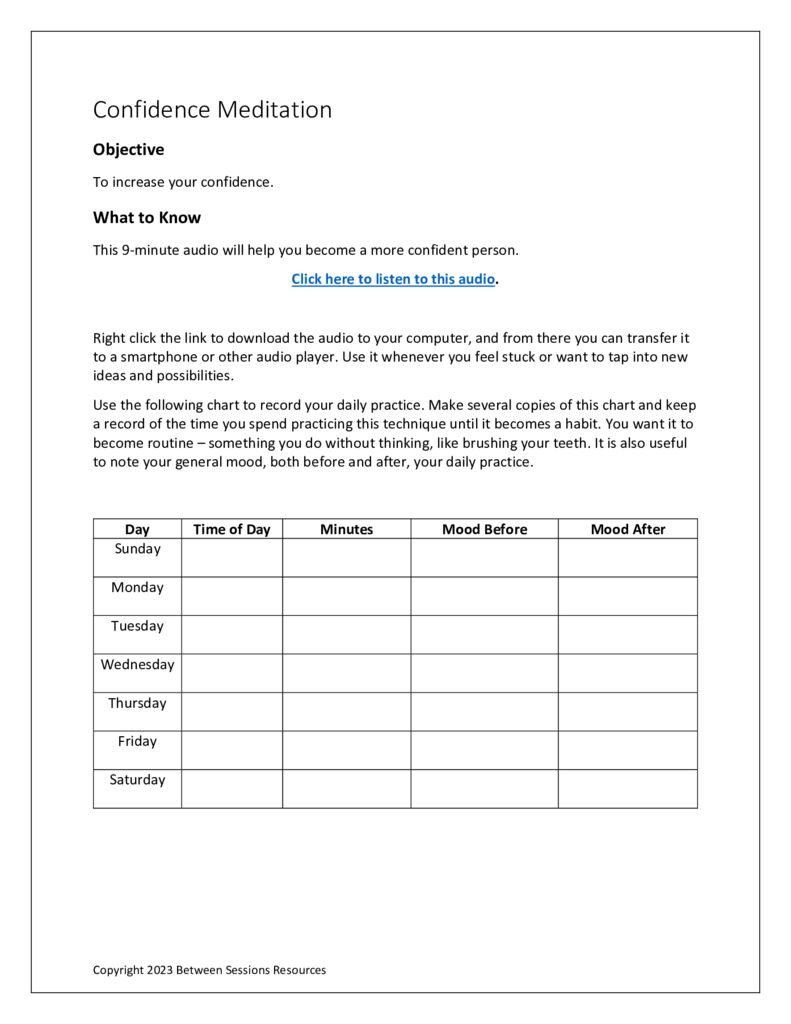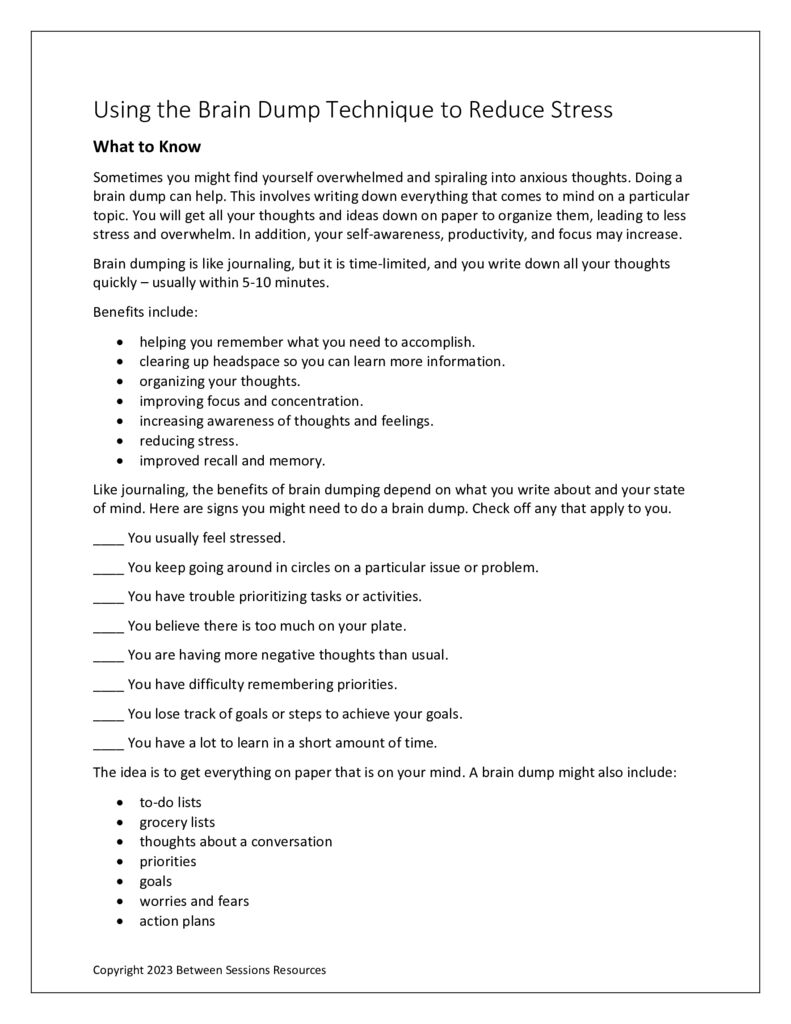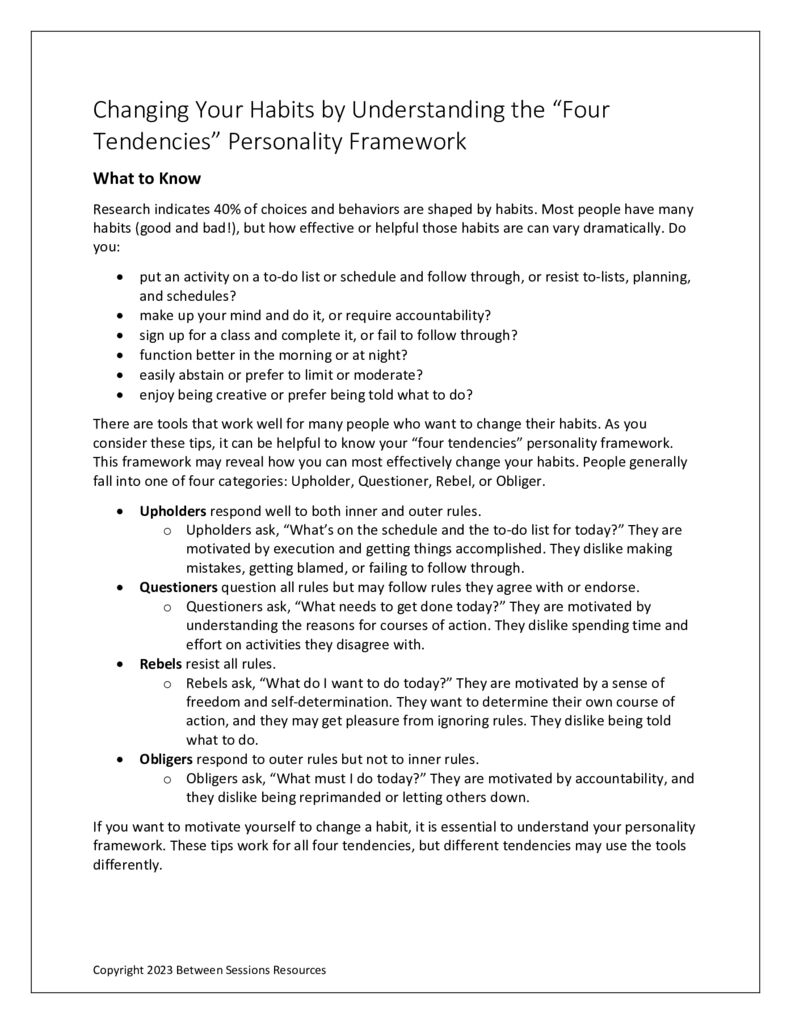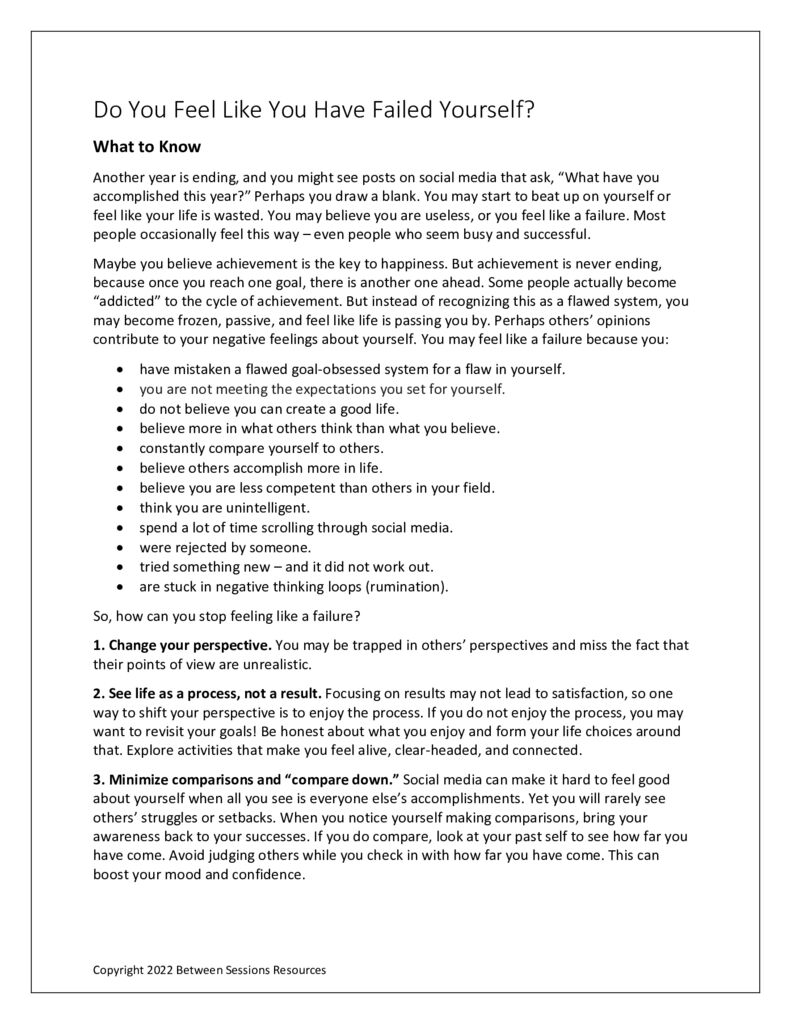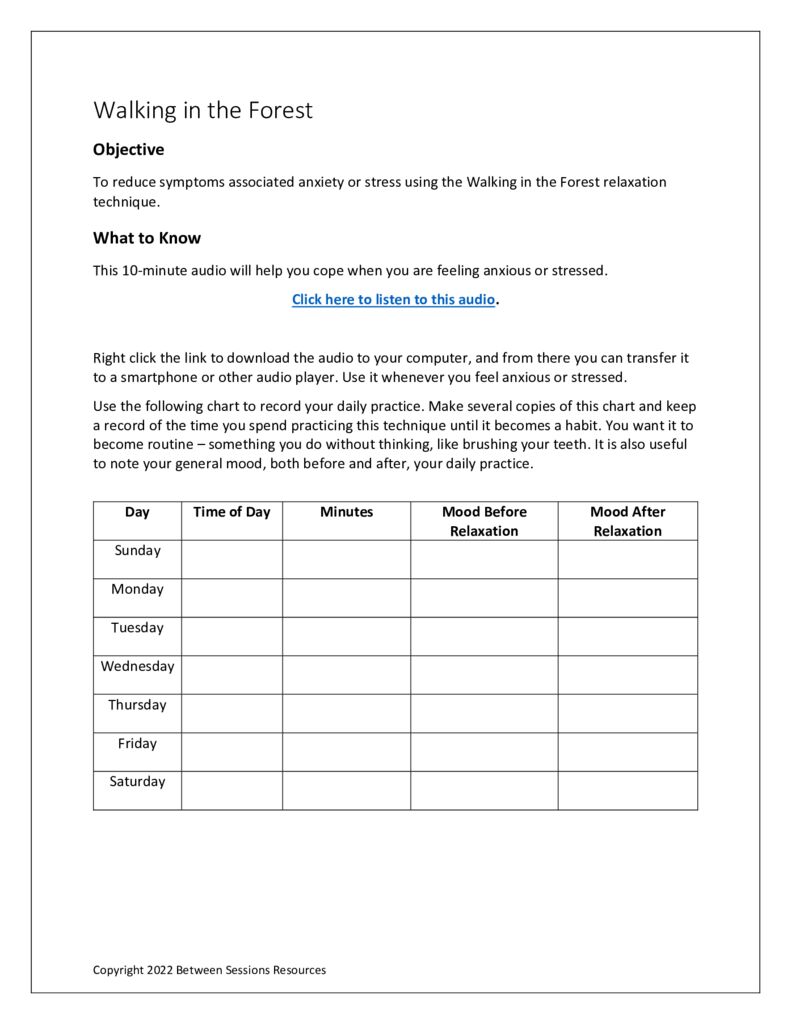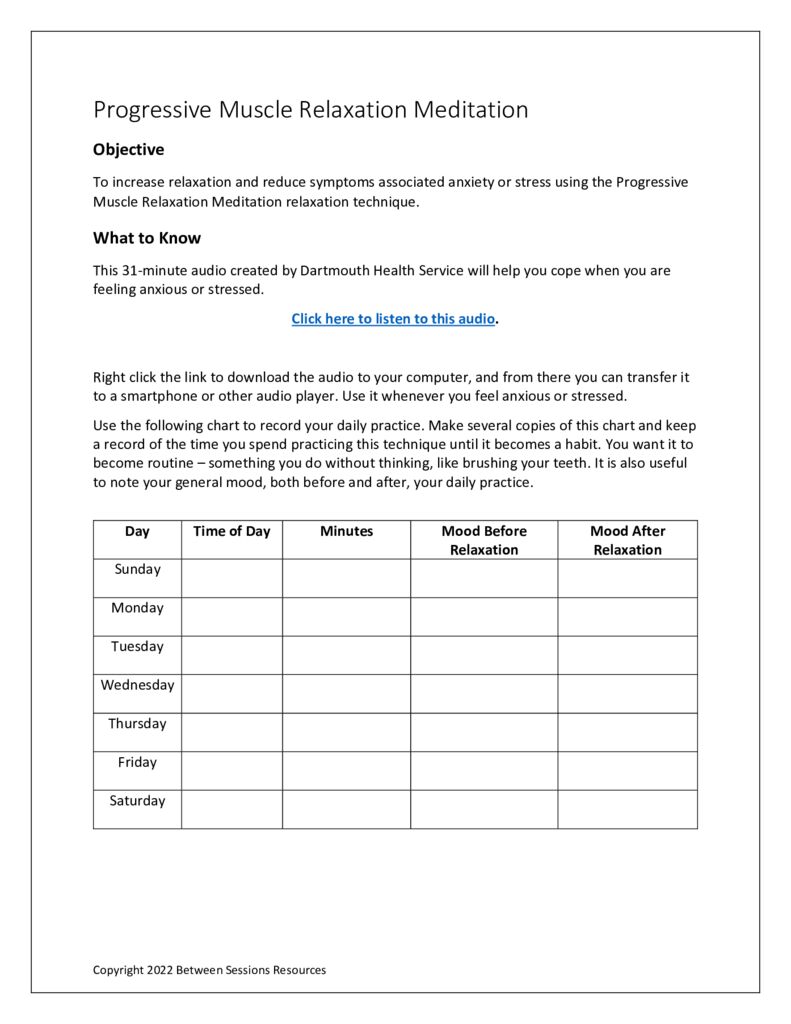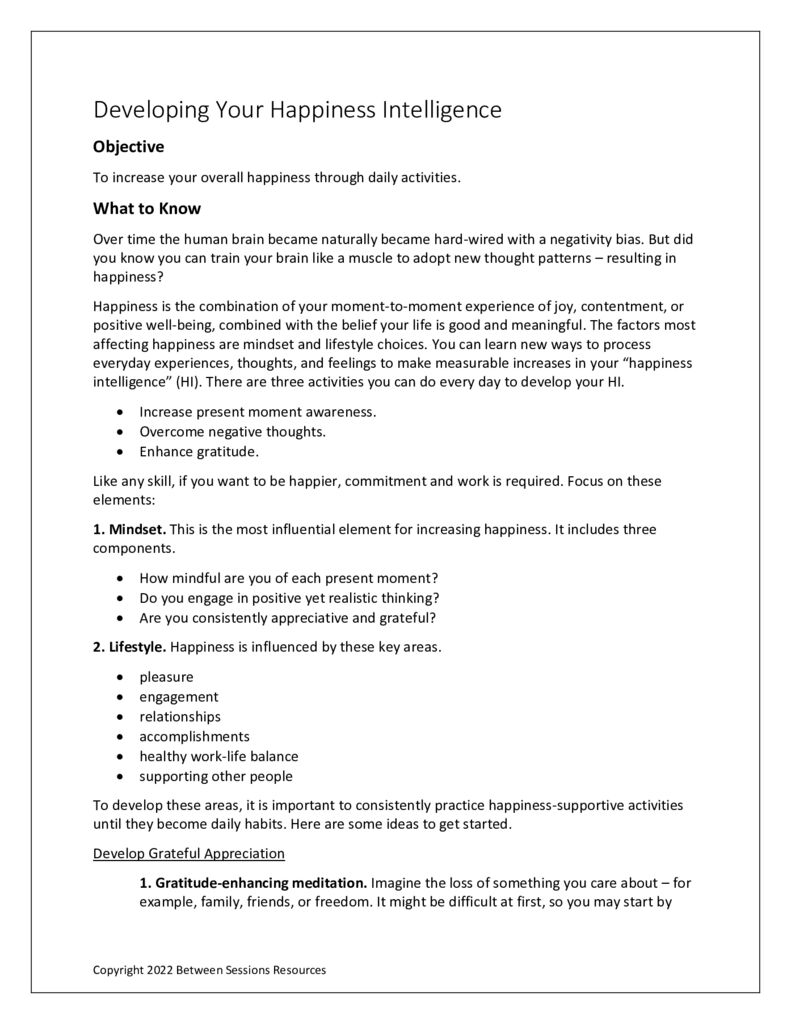Hopelessness is one of the most serious symptoms of depression. But hope can be regained. This worksheet 7 strategies to regain hope including connecting with others, self-care, engaging in problem-solving, and “arguing the opposite.” (1023, depression, dysthymia)
This worksheet will guide people through the process of exploring their identity after a significant loss. By exploring their personal qualities and engaging in thoughtful self-reflection, people can navigate their grief journey while honoring their unique identity. (0723, grief, self-image, identify, loss, healing)
This worksheet teaches the A.D.V.E.R.S.E. model developed by Martin Seligman to teach clients a realistic and optimistic style of thinking. The acronym stands for adversity, beliefs, consequence, disputation, and energization. The worksheet includes a chart for people to use for a two-week period to help change negative and pessimistic thoughts into realistic/optimistic thoughts. (0523, depression, learned optimism)
This eight-minute audio focuses on helping people become more confident. It is recommended that people listen to it every day for a week. A chart is included to help people keep track of their listening habits and rate their moods before and after listening to the audio. (0423. anxiety, shyness, depression)
This worksheet describes a stress reduction technique that involves writing down everything that comes to mind on a particular topic. A brain dump could include thoughts about a conversation, goals, worries, fears, or a list of things that are bothering you. The worksheet describes four categories of brain dumps. It encourages people to use a notebook or journal to practice this technique each day for two weeks and record their feelings. (0122, stress reduction, journaling)
This worksheet asks people to think about their personality in one of four categories: upholder, questioner, rebel, or obliger. It then gives 7 techniques to help people can change a habit. Charts are included to help people track and change their habits (0123, habits, problem-solving, impulse control)
This worksheet is designed for people who are down on themselves because they have not accomplished all that they wanted. The worksheet helps people see that this attitude is not at all helpful to their well-being and gives them 10 strategies to overcome their habit of self-criticism. (1222, depression, self-esteem, negative thinking)
This 10-minute audio was created to help people cope when they are feeling anxious or stressed. (0922, anxiety, relaxation techniques, audio)
This 31-minute audio created by Dartmouth Health Service will people cope when they are feeling anxious or stressed. (0822, anxiety, relaxation techniques)
This worksheet presents a way to make happiness part of a person’s everyday life. It presents more than two dozen activities that can contribute to a happier life, in categories like: supporting yourself, living in the present moment, and nurturing positive thoughts. The worksheet includes a chart to help people record the effects of happiness activities. (0722, happiness, depression, content)

